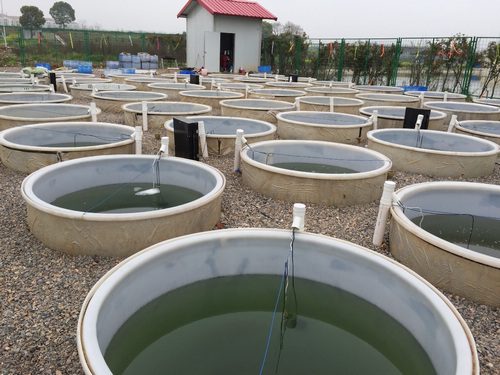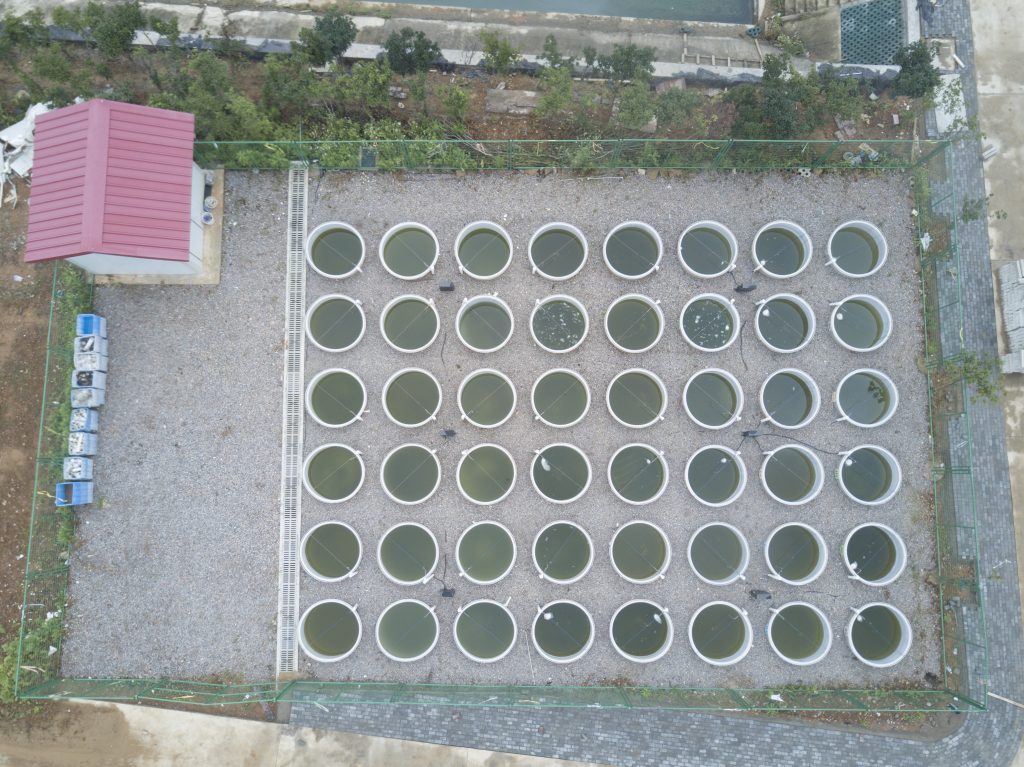- Institute of Hydrobiology, Chinese Academy of Sciences; Address: No. 7 Donghu South Road, Wuchang District, Wuhan, Hubei Province, China
- Huazhong Agricultural University; Address: No. 1, Shizishan Street, Hongshan District, Wuhan, Hubei Province, China
Prof. Dr. Jun Xu (group leader) Email: xujun@ihb.ac.cn
Associate Prof. Dr. Min Zhang Email: zhm7875@mail.hzau.edu.cn
Dr. Peiyu Zhang (Scientific Coordinator) Email: zhangpeiyu@ihb.ac.cn
There are 48 mesocosms, each with 1.45 m in height, 1.5 m in diameter and 2560 L in volume. The facility is located at an experimental base in Huazhong Agriculture University in Wuhan, a subtropical area at the middle reach of Yangtze River. Temperature can be regulated automatically by computer systems in all the mesocosms.
- Temperature (warming, an elevation of 4.0 °C above the ambient temperature; heatwave, a treatment with a pre-programmed fluctuating temperature ranging from 0 °C to 8 °C above ambient)
- Nutrients (nitrogen and phosphorus adding)
- Climate change
- eutrophication
- food webs
- macrophytes
Along the Yangtze River, hundreds of shallow lakes are over-exploited by human beings, resulting in the deterioration of the functions and services performed by these lake ecosystems. Furthermore, these shallow lakes are suffering from global climate change, under continuous warming over the last few decades and an unpredicted pattern of extreme climate events. We are interested in how climate change will affect these shallow lakes in the future, and what we can do to mitigate these effects.
We are a group of young scientists, led by Prof. dr. Jun Xu. We all have international education background (studied in The Netherlands, Sweden, Finland and US). We have been working on
- climate change effects on shallow freshwater ecosystems, focusing on
- trophic interactions
- food webs
- stoichiometry
- stable isotope ecology in aquatic ecosystems.
- basic warming simulation mesocosms
- labs for indoor controlled experiments
- monitoring and analyzing of biological samples
- access to the Advanced Analysis Center which belongs to IHB-CAS: all kinds of biological and chemical parameters can be analyzed.
 |
 |
